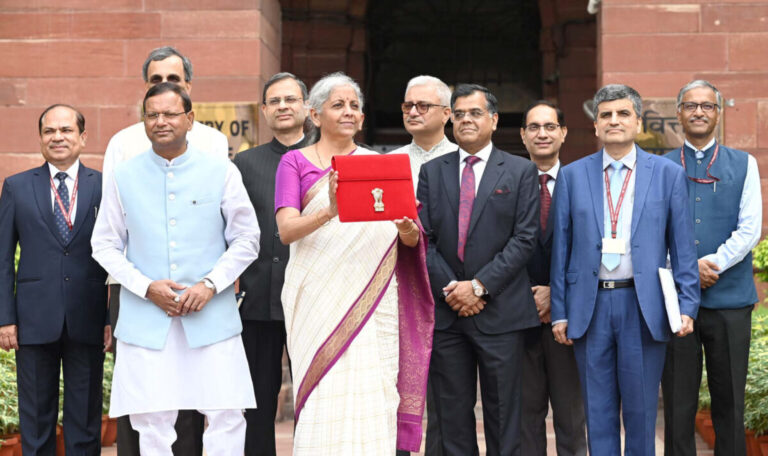Indian Finance Minister Nirmala Sitharaman presented the Union Budget for 2024-25 in the Lok Sabha this week. For the renewable energy sector, especially solar energy, the budget supports production by exempting specific machinery and equipment used for the production of solar cells and modules from basic customs duties (BCD).
Such machines previously had a customs duty of 7.5%. The exemption will reduce costs for manufacturers of solar cells and modules.
Import duty exemptions (BCD) have been extended for specific goods used in the manufacture of silicon wafers, EVA (ethylene vinyl acetate) sheets and flat copper wire for photovoltaic ribbon. These exemptions will last until March 31, 2026 and will expand the scope of materials that can be imported.
However, from October 1, a customs duty of 10% will be imposed on solar glass used for the production of solar cells or modules. From October 1, a customs duty of 5% will also be levied on tinned copper connections for the production of solar cells or modules.
“In view of ensuring sufficient domestic manufacturing capacity for solar glass and tinned copper compounds, I propose not to extend the customs duty exemption granted to them,” the Finance Minister said in her Budget speech.
The exemption from customs duties on active energy controllers (AEC) used in the production of inverters for renewable energy systems will also expire on September 30.
To stimulate battery production, the BCD exemptions for parts and raw materials used for the production of lithium-ion cells have been extended until March 31, 2026. Specific parts and components for the production of lithium-ion batteries and battery packs are until March 31 also exempt from BCD. 2026. Lithium, copper and cobalt are exempt from customs duties.
To read further, visit our pv magazine India website.


